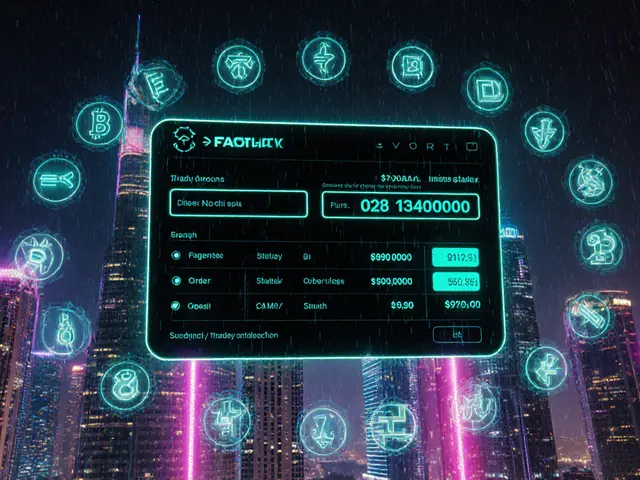OFAC and Crypto: What You Need to Know About Sanctions, Compliance, and Risk
When you hear OFAC, the U.S. Office of Foreign Assets Control, a government agency that enforces economic sanctions against individuals, companies, and countries. Also known as the Treasury Department’s sanctions arm, it doesn’t just target banks—it tracks crypto wallets, DeFi protocols, and even anonymous transactions. If you’re trading crypto, using a wallet, or running a platform, OFAC’s list matters. It’s not a suggestion. It’s the law.
OFAC doesn’t just freeze bank accounts. It adds crypto addresses to its SDN list—the Specially Designated Nationals list. Once a wallet is on it, any U.S.-based exchange, service, or even individual who interacts with it risks fines, lawsuits, or criminal charges. That’s why Binance, Coinbase, and Kraken scan every deposit and withdrawal against OFAC’s database. They don’t want to be the next fined company. Blockchain forensics firms like Chainalysis and Elliptic help them do it. These tools trace coin movement across chains, link addresses to real-world identities, and flag suspicious patterns. It’s not science fiction. It’s happening right now.
OFAC’s reach extends beyond big exchanges. If you’re running a DeFi protocol, even one that claims to be "decentralized," and users from sanctioned countries like Iran, North Korea, or Syria interact with it, you could be in trouble. That’s why some projects shut down access to certain regions. That’s why some airdrops require KYC. That’s why scams like Apple Network (ANK) or Libre Swap often hide behind anonymity—they know they’re operating outside the law. And OFAC is catching them. In 2023, the U.S. Treasury sanctioned a mixer used by North Korean hackers to launder $100 million in stolen crypto. The mixer’s addresses? Now frozen. The people behind it? Still unknown. But their wallets are tagged.
You don’t need to be a criminal to get caught in OFAC’s net. A simple mistake—sending crypto to a wallet that was once used by a sanctioned entity, even years ago—can trigger a flag. Some wallets get reused. Some get compromised. Some were never meant to be used at all. That’s why tools like Token Sniffer and RPHunter now include OFAC compliance checks. They’re not just spotting rug pulls—they’re spotting legal traps.
And it’s not just the U.S. The EU, UK, Canada, and Australia all have their own sanctions lists, often aligned with OFAC. If you’re in Bangladesh and using a VPN to trade crypto, you’re not just avoiding local bans—you might be crossing international lines. Bangladesh’s Foreign Exchange Act doesn’t mention crypto, but if your transaction flows through a U.S.-linked exchange that flags OFAC, your funds could disappear overnight. No warning. No appeal.
So what does this mean for you? If you’re holding crypto, you’re not just holding value—you’re holding a digital footprint. And that footprint is being watched. The good news? You don’t need to be a hacker to stay safe. You just need to know where your coins came from, where they’re going, and who’s behind the addresses you interact with. The posts below show real cases: how authorities track ransomware gangs, how scams get exposed, how exchanges block sanctioned users, and how even abandoned tokens like EzyStayz (EZY) can still carry legal baggage. You’ll see what’s real, what’s risky, and what’s just plain dangerous. No fluff. No theory. Just what you need to know before you click send.




